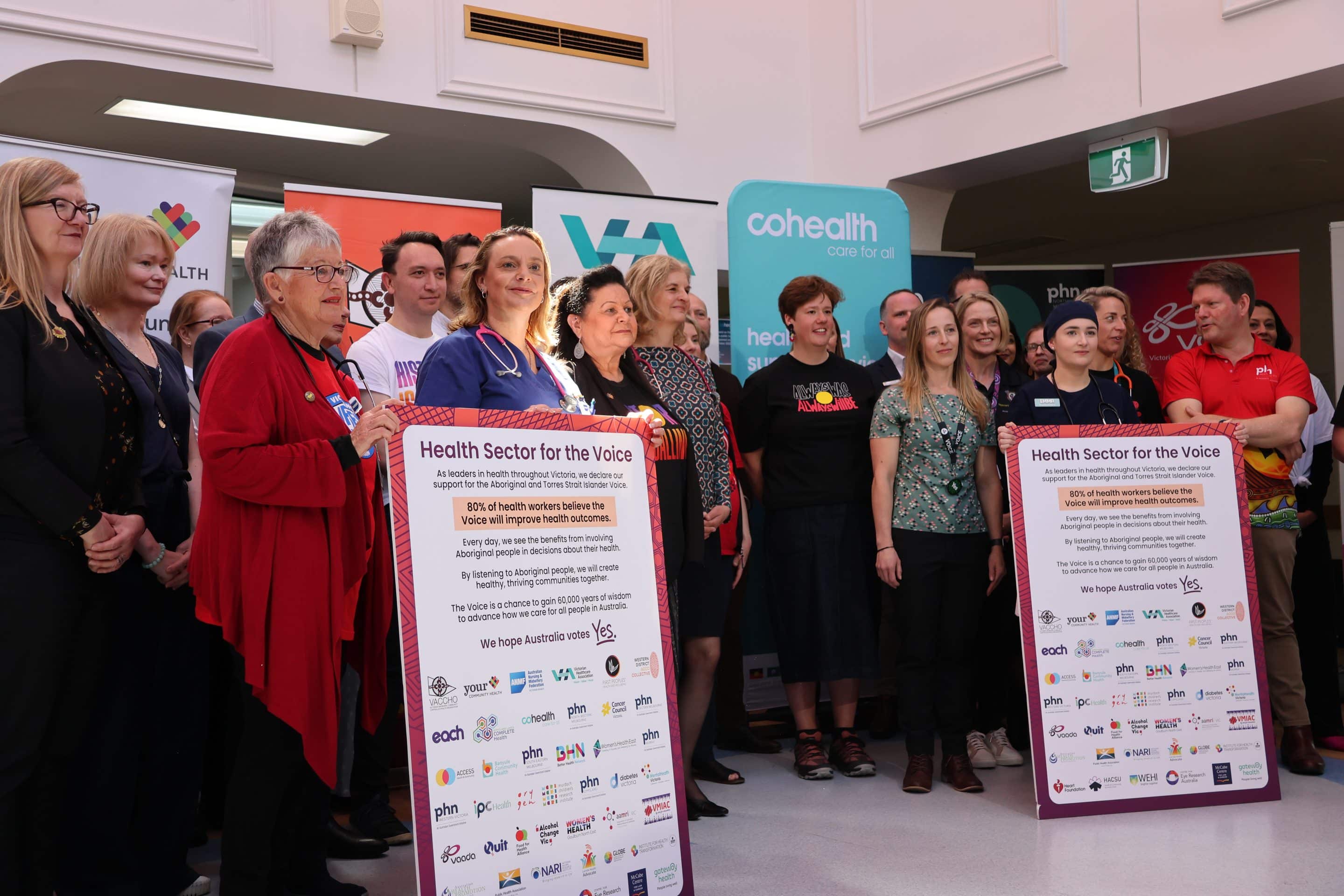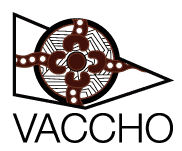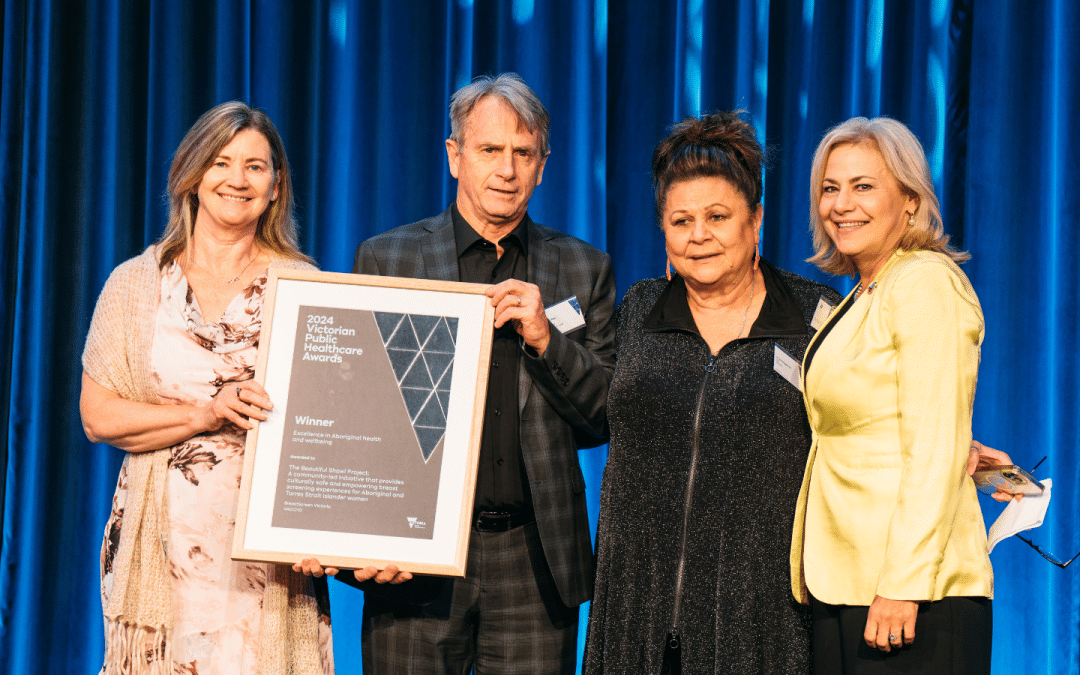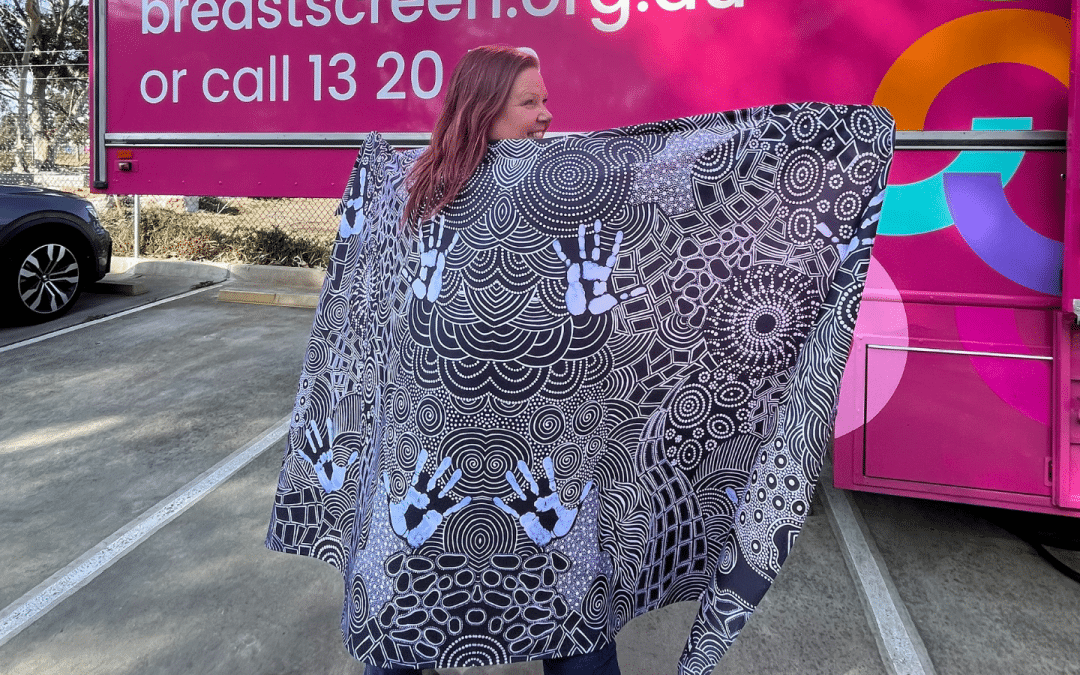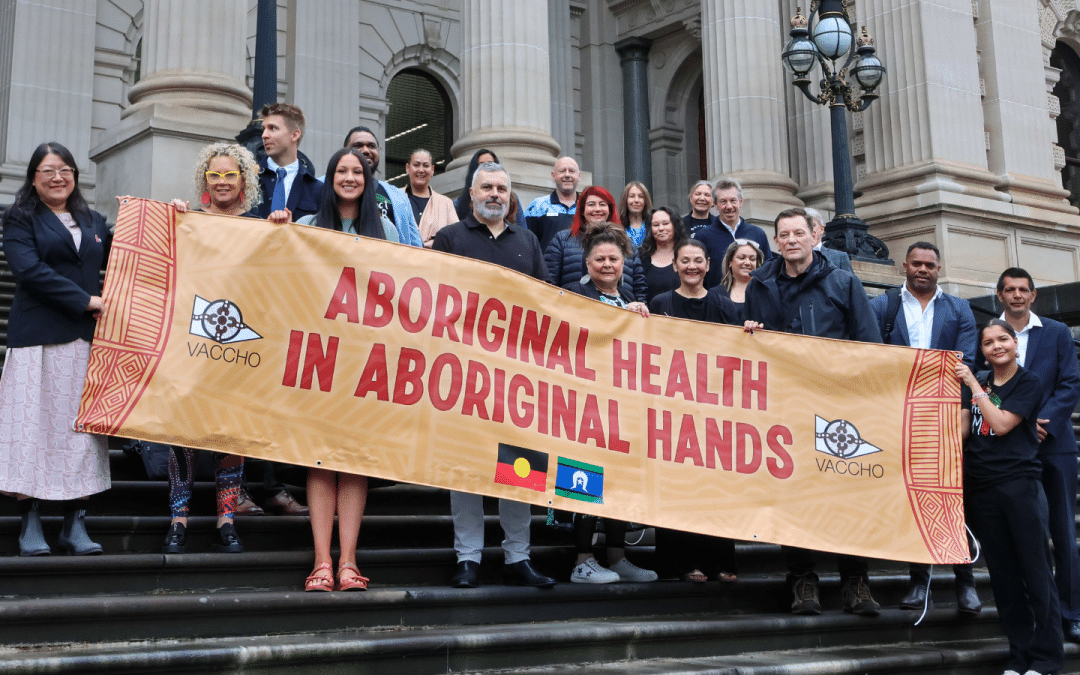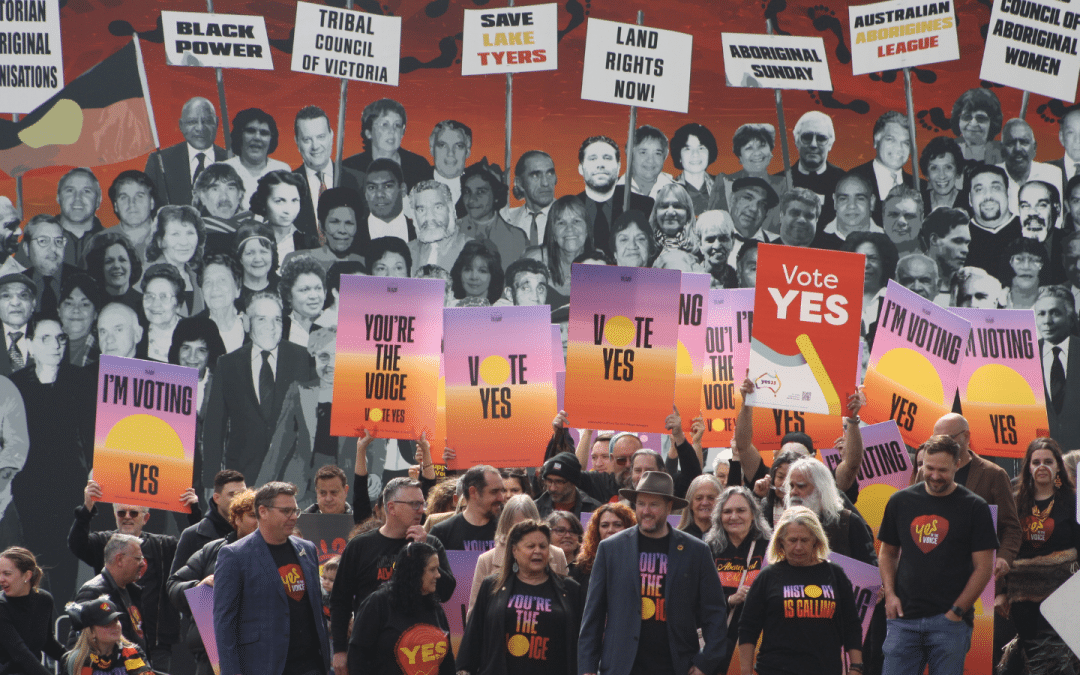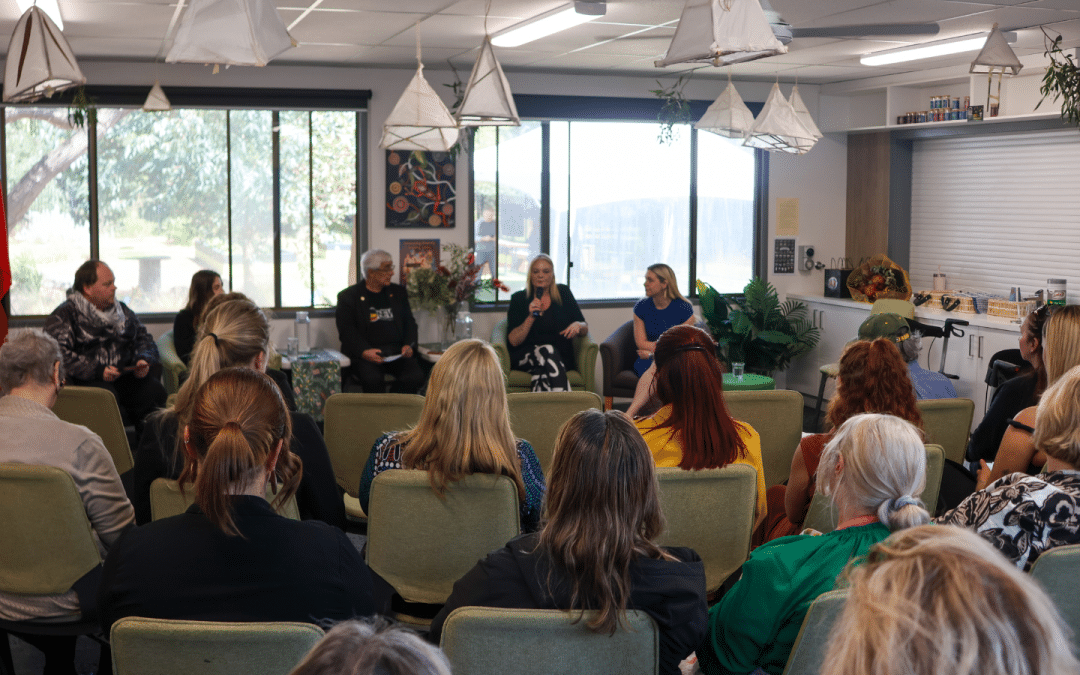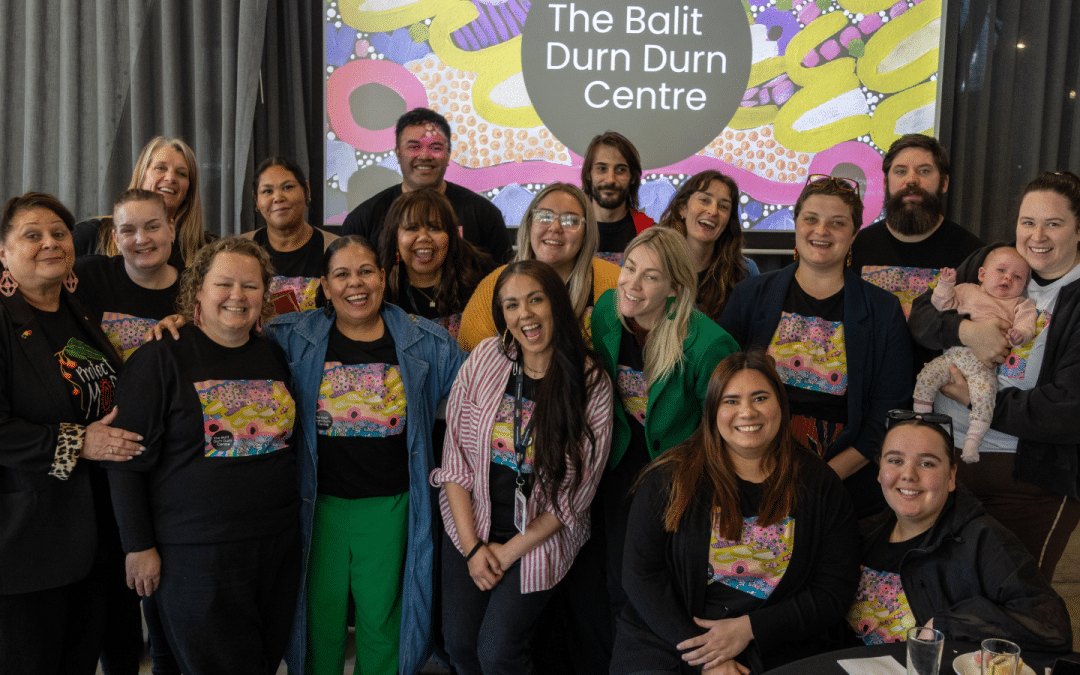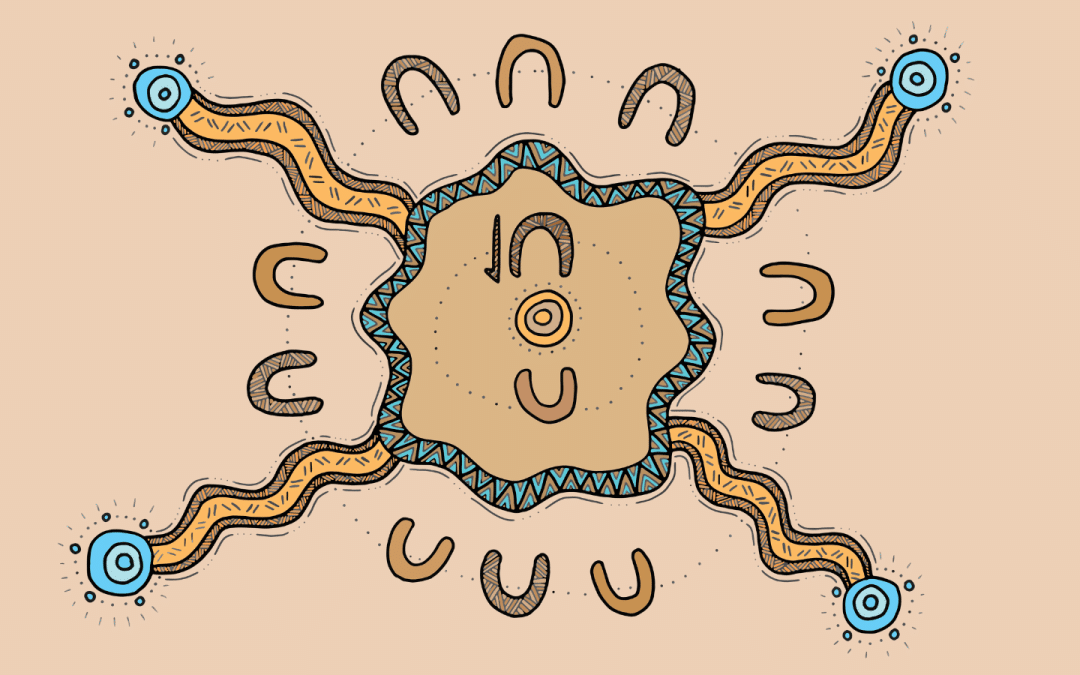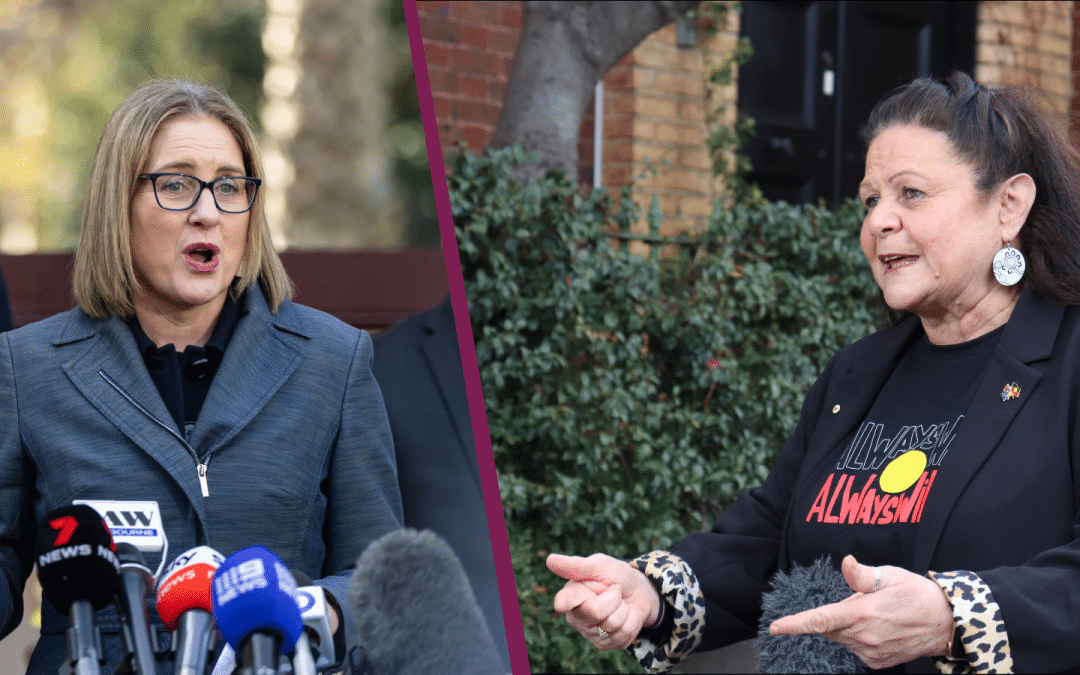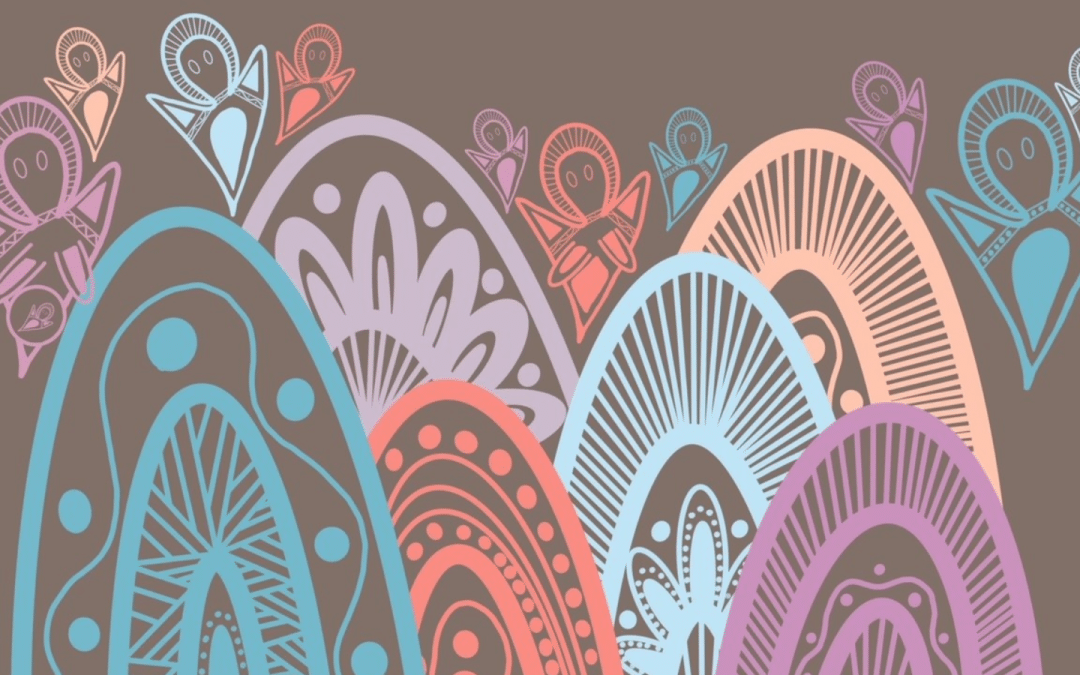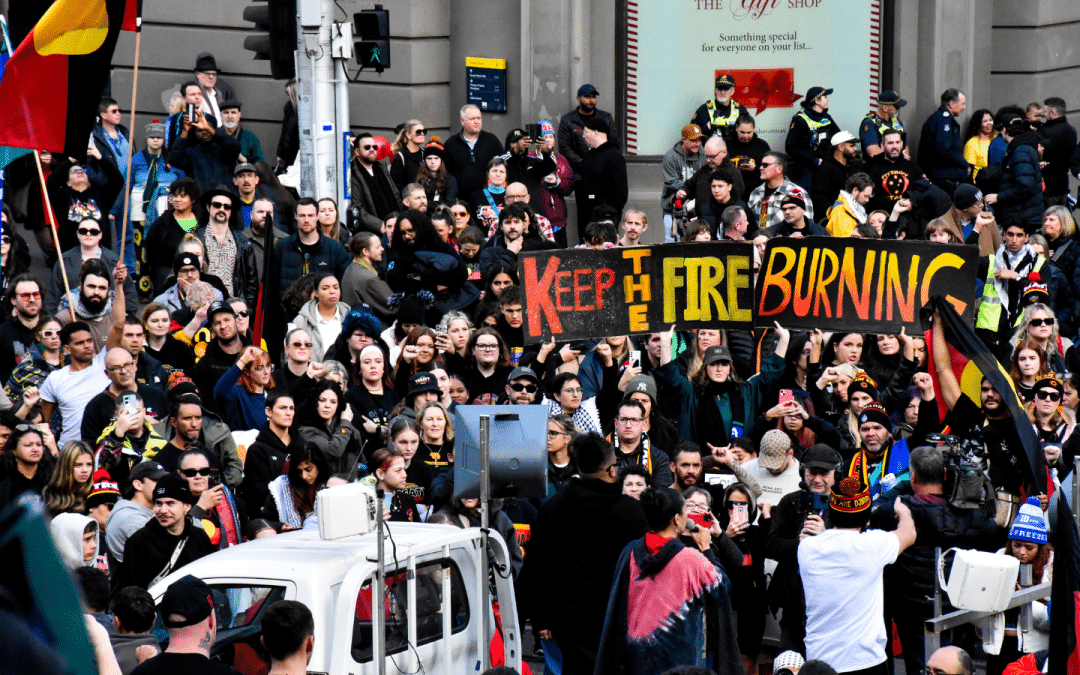In a survey of 1600 health workers* across Victoria, 80% believed that health and wellbeing outcomes would be improved if Aboriginal people had more involvement in developing health policy. The survey, conducted by VACCHO and the Australian Nursing Midwifery Federation, also found that 76% believed Aboriginal and Torres Strait Islander people didn’t have enough involvement in developing health policy that affected them.
An allied health clinician completing the survey advised: “I’m still unsure I am providing the best support to Aboriginal clients because of the gap in healthcare and because Aboriginal people don’t yet have much of a voice in developing health policy. I want to do better and I want our policies to better represent all Australians.”
Led by VACCHO, over 50 leading health organisations in Victoria, including community health organisations, primary health networks and leading peak bodies like VicHealth and the Heart Foundation joined a press conference to release results of the survey and declared their support for the Voice.
Associate Professor Ines Rio, a GP and chair of North Western Melbourne Primary Healthcare Network, said: “For over two centuries First Nations people have faced stark disparities in health, and shorter lives…For too long we’ve done things ‘to’ or ‘for’ First Nation people instead … we must do things with Aboriginal and Torres Straight Islander people.”
The health organisations also released a Statement of Support believing the Voice will lead to better policies in health, and also children and families, education, jobs, housing and transport, all of which will improve significant benefits for health.
Sandro Demaio, VicHealth’s Chief Executive Officer said: “As a doctor, I strongly believe that a Voice to Parliament will have important health and wellbeing benefits for all Australians. When we listen to communities, we make better decisions, achieve better health outcomes and ultimately lower rates of chronic disease.”
The press also heard from Dr. Erin Gordon (cohealth) and Dr. Libby Rochstein (EACH) about how their own clinical practice has evolved having worked with Aboriginal communities.
“I remember thinking that I had all the good intentions with a very strong focus on providing ‘good medicine’,” Dr Gordon said. “What I left with, though, was a profound education and shift in my perspective, with listening and collaboration being at the heart of this learning.“
Concluding the press conference, VACCHO’s Chief Executive, Jill Gallagher AO, advised that the importance of the Voice being passed should not be underestimated.
“The Voice is an opportunity for Australia to embrace Aboriginal and Torres Strait Islander people and their culture. That embrace will have tremendous benefits on health and wellbeing. Being recognized, respected and valued can be a powerful medicine.”
“80% of Aboriginal people want the Voice; 80% of health workers want the Voice – we hope that come referendum day, 80% of all Australia support the Voice.”
Read the Health Sector for the Voice declaration here.
*The survey was completed by nurses, GPs, surgeons, psychologists, dentists, Aboriginal health workers and allied health professionals, who work at over 80 different organisations including a mix of public, private and community-based health organisations in Victoria.
